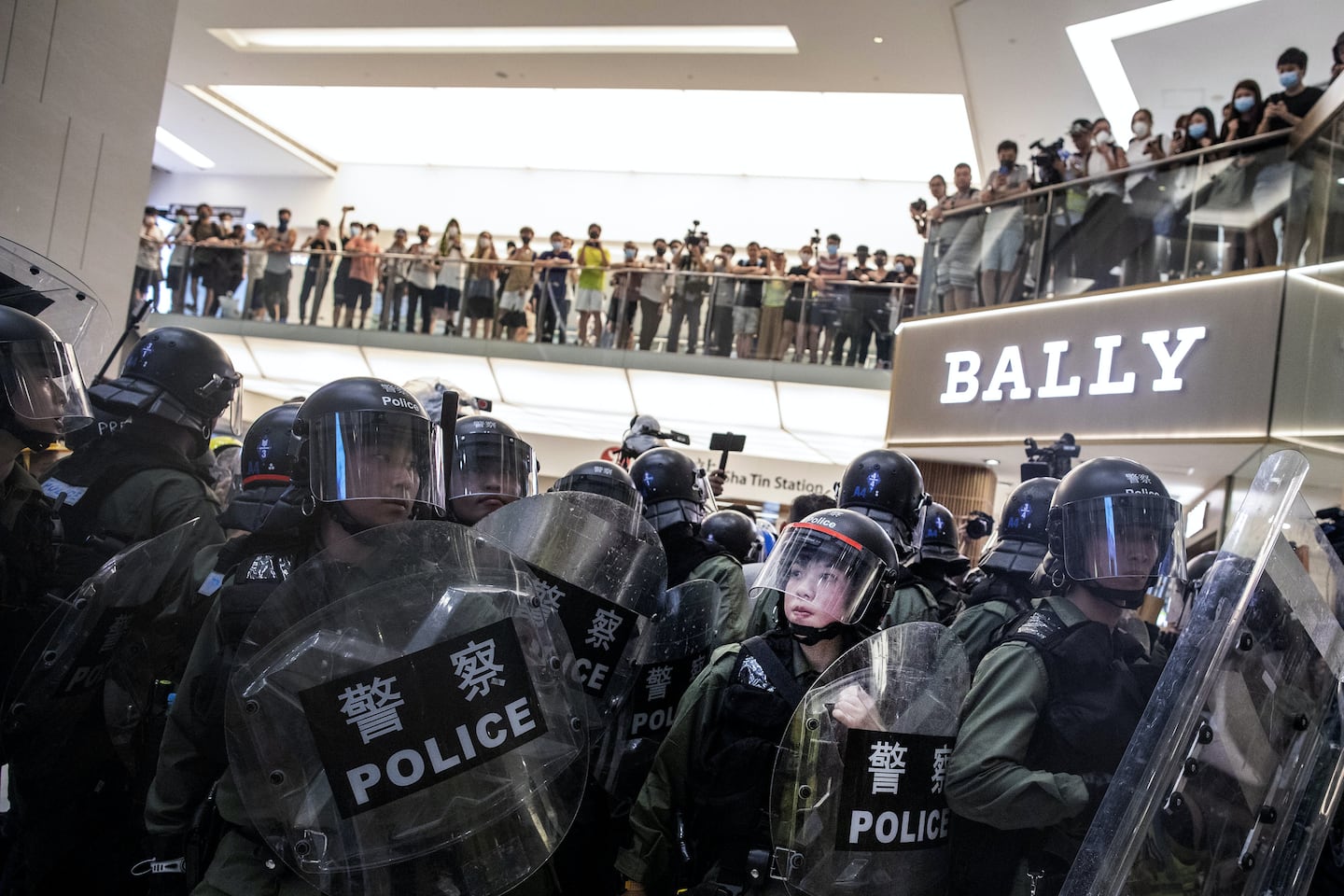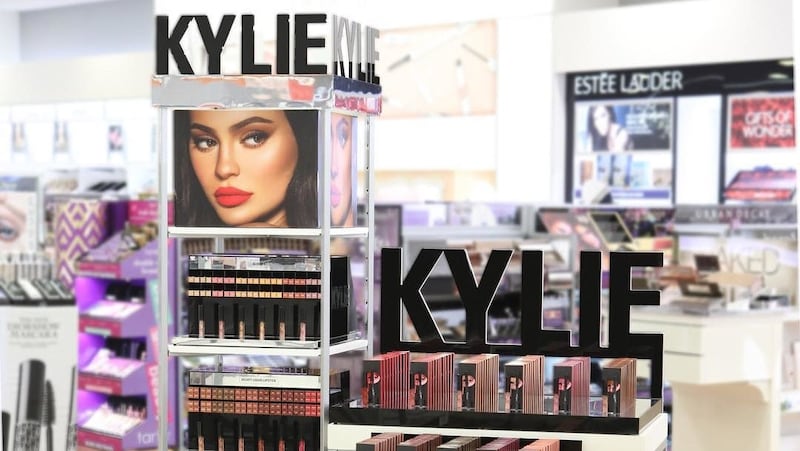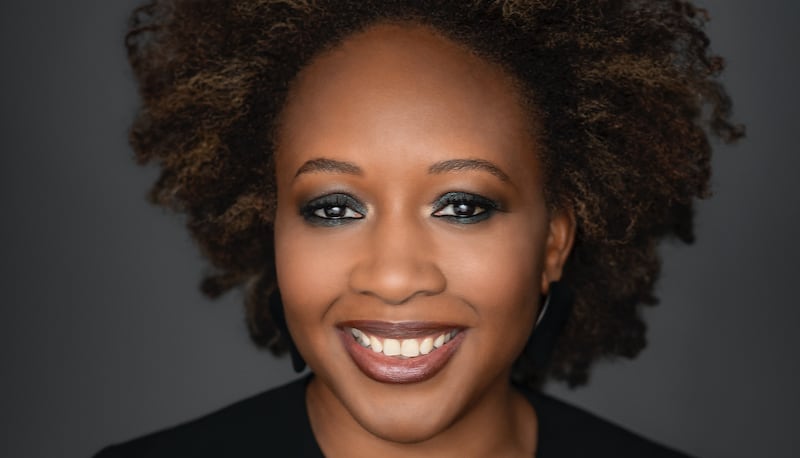
The Business of Fashion
Agenda-setting intelligence, analysis and advice for the global fashion community.

Agenda-setting intelligence, analysis and advice for the global fashion community.

Hello BoF Professionals, your exclusive 'This Week in Fashion' briefing is ready, with members-only analysis on the key topic of the week and a digest of the week's top news.
If this were a normal week in a normal year, retailers in Hong Kong would be turning their attention to holiday festivities and cheerful decorations. Instead, they are turning to their landlords for a discount.
Many retailers now fear that the chaos seen this week — as the battle between pro-democracy protesters and the Beijing-backed government enters a dangerous new phase — is indicative of Hong Kong’s "new normal" and that lower rents are the only way to offset falling sales in what is one of the world’s most expensive cities to set up shop.
Protests have gripped the city for the better half of this year and mainland Chinese tourist numbers, previously a dependable lifeline for Hong Kong retailers, have already dropped precipitously — by as much as 90 percent year-over-year in some months, according to Hong Kong’s Travel Industry Council.
ADVERTISEMENT
“We are living in an exceptional time. We don’t know exactly what the consequences will be,” said Mario Ortelli, managing partner at luxury consultancy Ortelli & Co.
Hong Kong's struggle to stay open for business, amidst increasingly violent clashes between protestors and police, is a widely acknowledged disaster for luxury brands operating there. Prior to this year, the city accounted for between 5 and 10 percent of annual global sales of luxury goods, according to Bernstein analysts. For some brands, the proportion will have been even higher.
The main consolation for luxury players being hit in Hong Kong is that there is room for them to grow in mainland China, where some spending continues to be repatriated. For example, Bernstein analyst Luca Solca told BoF in September that there was "definitely" enough growth left for Tiffany in mainland China to offset any losses the jeweller experiences in Hong Kong.
Cities like Tokyo and Seoul are popular destinations for Chinese tourists that are also close enough to capture some of the travel retail spend lost in Hong Kong. But it is unlikely that repatriation and flexible tourists will together offset enough losses for everyone.
Meanwhile, political turmoil spiralled further last week in Hong Kong, with protests usually confined to the weekends spilling into the work week. Even the city’s neatly attired office workers have been rolling up their shirt sleeves and entering the fray, joining black-clad protestors for “lunch hour” sit-ins. This week saw the situation further escalate, with anti-government protesters barricading themselves inside a university and pitched battles in other parts of the city.
“Luxury companies want to wait before taking any radical decisions about massive renegotiations, or closing shops. They are trying to lessen costs, they are starting to talk with landlords about rent renegotiations, looking to get some weeks or months of free rent. Then we will see what we have,” Ortelli said.
Luxury companies want to wait before taking any radical decisions about massive renegotiations, or closing shops.
Data released last week by Cushman & Wakefield revealed that Hong Kong’s Causeway Bay has so far retained its crown as the world’s most expensive shopping district, followed by New York’s Upper 5th Avenue and London’s New Bond Street, but as social unrest stretches on with no end in sight, retailers and landlords are facing up to a "new normal" of their own.
Property experts predict that Hong Kong will soon relinquish its increasingly unenviable title as commercial retail rents in the city are now considered to be overpriced and unsustainable. In the coming two quarters a downward adjustment in rent prices of 20 to 30 percent in major retail areas, such as Causeway Bay, Tsim Tsa Tsui and Hong Kong Central is on the horizon.
ADVERTISEMENT
“We have heard from both sides, the tenant side and the landlord side, that the tenants are looking to renegotiate the lease, or ask for rental concessions,” said Kevin Lam, Executive Director and Head of Retail Services for Cushman & Wakefield Hong Kong, explaining that landlords for street level stores (as opposed to major mall stores, which haven’t been as affected by the street protests) with leases expiring in the next six to nine months are being particularly flexible.
In recent third quarter earnings reports, LVMH saw sales among its portfolio of brands fall 25 percent in Hong Kong, Kering reported a 35 percent drop in sales across the board here, with Moncler falling 40 percent, while Salvatore Ferragamo reported a 45 percent decrease in Hong Kong sales. Most brands, however, also saw higher sales in mainland China, which has been acting as a counterbalance for the strongest luxury players.
Slashing rent by around a quarter would go some way toward clawing back what luxury brands lost this year, but most will still take a hit to the bottom line unless there is a resolution to the crisis — something that's looking increasingly unlikely as both sides become further entrenched in their positions. Meanwhile, Beijing appears to be running out of patience as Chinese President Xi Jinping issued his harshest warning yet to protestors last week.
Retail real estate rental transactions in Hong Kong usually slow down in late December and early January, as brands and retailers focus instead on what is traditionally the biggest sales period of the year: the Chinese New Year Golden Week holiday. However, property insiders foresee that transactions will be down next spring.
<span class="c-message__body" data-qa="message-text" dir="auto">A downward adjustment in rent prices of 20 to 30 percent is on the horizon.</span>
“We estimate around 15 or 20 percent drop in rental will happen after Chinese New Year,” said Lawrence Wan, senior director, advisory and transaction services, retail at CBRE Hong Kong, adding that the luxury sector, with a large percentage of its traditional client base coming from mainland tourists and its significant street level exposure in Causeway Bay, Tsim Tsa Tsui and Central, has been among the hardest hit by Hong Kong’s many months of retail woes.
According to Wan, any future impact on the local retail market depends on the Hong Kong government’s ability to draw up new policies that lure demand back. In terms of short-term plans to shrink or rethink store networks, Wan explained that most brands are still weighing their options.
“As far as we know, many retailers haven’t made up their mind about whether to scale down a certain percentage or walk out on the market. These solid measures are yet to be decided,” Cushman and Wakefield’s Lam said.
Alicia Garcia Herrero, chief economist for the Asia Pacific at Natixis agrees that the government has a role to play in helping to stem some of the economic bleeding. She predicts Hong Kong’s economy this year will contract 1 to 2 percent, with “even worse” to come in 2020.
ADVERTISEMENT
“The retail sector is clearly the hardest hit and will continue to be for the foreseeable future,” she said. “The government should set up relief measures immediately [and] rental subsidies are one of the most urgent measures the government should introduce,” she said, adding that the Hong Kong government’s overall economic stimulus, which to-date is equal to only 0.7 percent of GDP, has been “highly disproportionate” in the face of the multi-faceted and increasingly urgent challenges it faces.
The picture painted by experts in Hong Kong is not uniformly negative, however. Some players are more insulated than others and the overriding negative impact on retail is being offset by opportunities for those serving demographics like family-friendly malls catering to affluent locals. Earlier this month, real estate mogul Adrian Cheng claimed that his new K11 Musea luxury art mall — which houses Alexander McQueen, Loewe and Sergio Rossi among others — is doing "phenomenally great" despite the city's volatile environment.
“We still have retailers asking to keep an eye on those really prime locations to see if there are any shops that will become available at a bargain price because they are keen to expand to that location. So, it’s a rare opportunity for retailers who have a long-term view in Hong Kong that they can look for extension,” said Cushman and Wakefield's Lam, pointing to sportswear and some American brands who have until now been under-exposed in Hong Kong as potential beneficiaries of a luxury rollback.
The ongoing retail crisis might also present a way-in for new tenants to access Asia’s once unrivalled — and now seriously troubled — but still potentially lucrative shopping hub. Brands that were hitherto priced out of the Hong Kong market altogether could potentially enter the fray, picking up some of the slack left by others looking to scale back. But this will be the exception and not the rule.
For most luxury brands, however, the longer Hong Kong's existential crisis continues the more they have to worry about.
THE NEWS IN BRIEF
FASHION, BUSINESS AND THE ECONOMY

Imran Amed speaks at VOICES | Source: Getty Images for The Business of Fashion
Fashion confronts a challenging future at VOICES. BoF's annual flagship event kicked off on Thursday with a series of world-renowned speakers, including Extinction Rebellion's Clare Farrell, investigative journalist Carole Cadwalladr and Iranian-American activist Hoda Katebi. Other highlights include SheFighter-founder Lina Khalifeh, gender non-conforming artist Alok V Menon as well as Jefferson Hack, co-founder and chief executive of Dazed Media. According to the newly released edition of BoF and McKinsey's joint State of Fashion 2020 report, the global fashion industry is grappling with an anxious year ahead amid projections for slowing growth and mounting socio-political unrest, but new technology and business models offer hope for innovative solutions.
LVMH makes its latest brick-and-mortar bet. After 15 years, €500 million worth of renovations in the building and a total investment of €750 million, LVMH is finally set to reopen the famous Parisian department store La Samaritaine, which it bought in 2001. The store will stock over 600 brands, including independent labels like Brock Collection. The beauty department will cover more than 3,000 square metres, the largest in a post-Brexit Europe.
Naples sweatshop linked to luxury groups. Armani, Kering's Saint Laurent and LVMH's Fendi are accused of employing undocumented immigrants. As police searched Moreno Srl's premises, some 50 workers, including a pregnant woman and two teenagers, were hiding in a storeroom. None of the companies confirmed any connection with Moreno, and Saint Laurent denied any relationship. But the case highlights the murky world of sweatshop labour that lies behind the complex supply chains of the industry.
L Brands has three months to placate activist investor Barington. Victoria's Secret's parent company also confirmed that it cancelled its annual fashion show. The retailer said in May that it was rethinking the format. Key changes have included Chief Marketing Officer Edward Razek stepping down and the hiring of transgender and plus-size models to address Barington's complaints that Victoria's Secret was becoming a dated brand. The company also appointed two women directors.
Report: LVMH gets access to Tiffany's books after it raises offer. Tiffany shares jumped 3.6 percent to $127 in after-hours trading in New York on the news. The development represents a key milestone in LVMH's bid for the iconic US jewellery-maker. Jewellery was one of the strongest performing areas of the luxury industry in 2018, according to consultancy Bain & Co, which forecasts that comparable sales will grow 7 percent this year.
Hudson's Bay chair to receive $11 million payout in takeover. The company agreed to sell itself to the group of investors led by Richard Baker last month after the buyers agreed to increase the takeover price to C$1.9 billion ($1.4 billion). Helena Foulkes, the company's chief executive officer, also stands to make about C$10.6 million in cash as part of a total payout of nearly C$34 million awarded to board members.
US appeals court restores gender bias lawsuit against Sterling Jewelers. The decision allows at least 70,000 female employees of the brand to pursue claims that the retailer paid them less and promoted them less often than men over a period of a decade. The 2nd US Circuit Court of Appeals in Manhattan restored a nationwide class action arbitration saying that a lower court erred in its previous ruling.
THE BUSINESS OF BEAUTY

A Kylie Cosmetics display inside an Ulta Beauty store | Source: @ultabeauty via Instagram
Coty buys majority stake in Kylie Jenner's Kylie Cosmetics. Jenner is selling a 51 percent stake of her Kylie Cosmetics line to the conglomerate, which values the makeup brand at almost $1.2 billion. Jenner's label has defied the makeup downturn. Her line generated about $177 million in revenue over the last 12 months, a 40 percent increase from the calendar year 2018. The brand's sales received a major boost in November 2018 when it entered all 1,200 Ulta stores.
Interparfums cautious on 2020 growth due to economic uncertainty. The French perfume maker forecast 2020 revenue at a lower-than-expected €500 million. "We plan to continue to invest significantly in marketing and advertising, without impacting our operating margin, which in 2020 is expected to reach between 14 percent and 14.5 percent," Chief Financial Officer Philippe Santi said in a statement.
Estée Lauder to buy Dr. Jart owner in first Asian brand takeover. The acquisition of South Korean beauty company Have & Be will help expand Estée Lauder's consumer reach in the Asia-Pacific region. Estée Lauder first bought a stake in the beauty company at the end of 2015 and has now acquired the two-thirds it didn't already own for about $1.1 billion. Dr. Jart will draw revenue of more than $500 million this year, Estée Lauder said in a statement.
PEOPLE

Ukonwa Ojo | Source: Courtesy
MAC Cosmetics taps Coty CMO for global marketing lead. MAC Cosmetics has named Ukonwa Ojo senior vice president, global marketing, effective December 9, 2019. Ojo joins the company from Coty, where she was chief marketing officer of consumer beauty. She will report to Philippe Pinatel, senior vice president and general manager, in this newly created role.
Arcadia Group names new chairman. Andrew Coppel, the former head of De Vere hotel and leisure group, will take on the new role. He will replace Jamie Drummond Smith, who was a corporate restructuring expert and stepped down from billionaire Philip Green's challenged company in September after five months as an interim chairman. Coppel will also become the chairman of Arcadia's direct holding company Taveta Investments and Top Shop Top Man Limited.
Tiffany hires former Barneys CEO as chief brand officer. Former Barneys New York Chief Executive Daniella Vitale joins Tiffany & Co. as executive vice president and chief brand officer, a newly created role. Tiffany's chief merchandising officer, Pamela Cloud, is stepping down after 25 years at the company, effective November 26. She will stay on to assist in a transitional period until July 31, 2020.
MEDIA AND TECHNOLOGY
Ex-Vogue editors launch a high-low take on e-commerce. Lucinda Chambers and Serena Hood have joined forces to launch Collagerie, a global online retail proposition based on product discovery and careful curation. Collagerie's edit will feature products spanning high street to luxury across fashion, beauty and lifestyle. Collagerie will operate as an affiliate partner, with users redirected to a brand's own site to complete their purchase.
Macy's discloses data breach. The company reported a slump in sales after confirming customers were exposed to a data hack last month. Macy's sales fell 11 percent. It was the second-biggest decline in the S&P 500 Index, trailing only Kohl's, which plunged 19 percent after disappointing investors with its latest quarterly earnings. Macy's hack highlights the risks that retailers face as shoppers move increasingly online.
Paypal to buy money-saving platform Honey for $4 billion. The deal with the platform, which finds and applies coupon codes on popular sites, is expected to add to PayPal's adjusted profit in 2021, and also extend PayPal's ability to help merchants deliver offers. PayPal shares were down 2 percent at $102 after the bell.
BoF Professional is your competitive advantage in a fast-changing fashion industry. Missed some BoF Professional exclusive features? Click here to browse the archive.
Antitrust enforcers said Tapestry’s acquisition of Capri would raise prices on handbags and accessories in the affordable luxury sector, harming consumers.
As a push to maximise sales of its popular Samba model starts to weigh on its desirability, the German sportswear giant is betting on other retro sneaker styles to tap surging demand for the 1980s ‘Terrace’ look. But fashion cycles come and go, cautions Andrea Felsted.
The rental platform saw its stock soar last week after predicting it would hit a key profitability metric this year. A new marketing push and more robust inventory are the key to unlocking elusive growth, CEO Jenn Hyman tells BoF.
Nordstrom, Tod’s and L’Occitane are all pushing for privatisation. Ultimately, their fate will not be determined by whether they are under the scrutiny of public investors.